Speakers
Alexander Aulehla
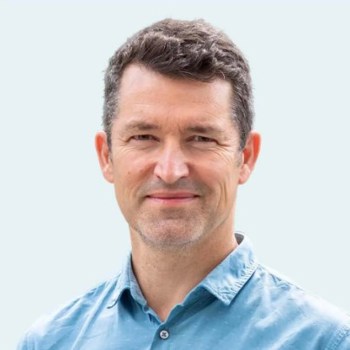
Session
-
Session I: Patterning and morphogenesis
Tuesday 25 March 11:00 - 12:30
Hall 1B
Programme: Cell and developmental biology
George Bakken
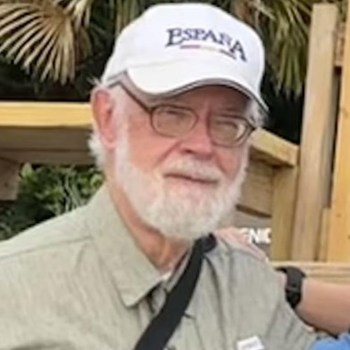
Prof. Bakken obtained a PhD in physics at the William Marsh Rice University in Houston, TX, USA in 1970. He then assumed a postdoctoral position with Dr. David M. Gates’ program in Biophysical Ecology at the Missouri Botanical Garden in St. Louis, MO, USA, and continued as a Research Associate at the University of Michigan Biological Station, Ann Arbor, MI, USA to 1975. He then joined the biology faculty of Indiana State University, retiring in 2015 as Distinguished Professor of Arts and Sciences. His biophysical ecology research included thermoregulation, microclimate, and energetics. Most recently, he applied his background in optical physics to thermal radiation sensing in pitvipers. He remains active in research, collaborating with Dr. Rulon Clark at San Diego State University on rattlesnake research, and with Dr. Joy O’Keefe at the University of Illinois on bat conservation. Otherwise, he enjoys birding photography with his wife (she counts, he shoots), flying his Cessna 172, and maintaining and upgrading their house and summer cabin. All 10 fingers have survived hammers, circular saws, and snakes.
Session
-
Session IV: Infrared and electric sense
Wednesday 26 March 11:00 - 12:30
Room 3A
Programme: Sensory perception in a changing world - impacts on physiology and behaviour
Francesca Barbero
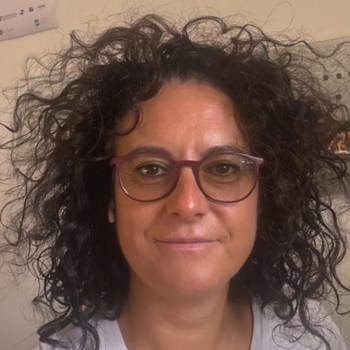
I am a professor of Zoology at Turin University (ITALY), and my research focuses on communication and mimicry in multitrophic systems involving plants, microorganisms, and insects.
Session
-
Session V: Vibration sense
Wednesday 26 March 13:30 - 15:00
Room 3A
Programme: Sensory perception in a changing world - impacts on physiology and behaviour
Jessica Blair
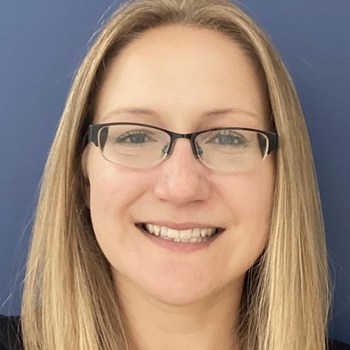
Session
-
Session II: Cellular mechanisms of AMR
Wednesday 26 March 13:30 - 15:00
Hall 1C
Programme: Interdisciplinary approaches to combatting antimicrobial resistance
Margardia Cardoso Moreira
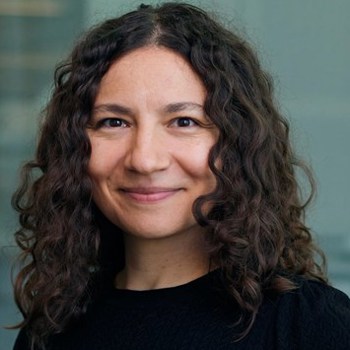
Margarida is an evolutionary biologist. She did her PhD research at the University of Chicago with Manyuan Long, followed by a postdoc at Cornell with Andrew G. Clark. She then joined Henrik Kaessmann's group (at the University of Lausanne and Heidelberg University), where she spearheaded a research program on the evolution of mammalian organs, for which she received the Otto-Schmeil prize from the Heidelberg Academy of Sciences and Humanities. Margarida started her group at the Francis Crick Institute in 2021. Her group studies how organs originate and how they change in form and function across species.
Session
-
Session I: Patterning and morphogenesis
Tuesday 25 March 11:00 - 12:30
Hall 1B
Programme: Cell and developmental biology
Alain Chedotal
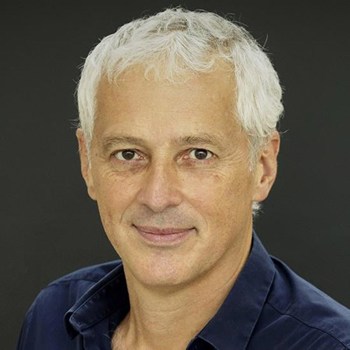
Alain Chédotal, is researcher at INSERM and since 2008 group leader at the Vision institute in Paris. He is also Professor at Lyon University and Hospital. He received his PhD degree from Pierre & Marie Curie University in Paris did a postdoc at UC Berkeley. His lab studies the development and evolution of nervous system connectivity. He has pioneered the use of tissue-clearing methods and light sheet microscopy to study embryogenesis. He is the coordinator of the HUDECA consortium a state-of-the-art INSERM interdisciplinary program whose goal is to build an atlas of embryonic and fetal human organs.
Session
-
Session VI: Biology across scales
Wednesday 26 March 13:30 - 15:00
Hall 1A
Programme: Cell and developmental biology
Susana Clusella-trullas
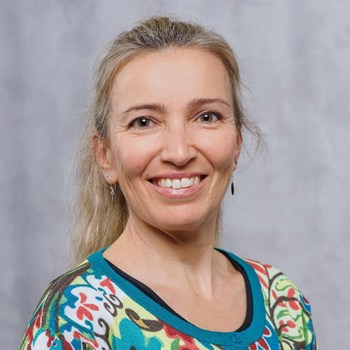
I am a physiological ecologist with expertise in the thermal biology of reptiles and insects. My primary research focuses on exploring how ecological drivers and evolutionary processes shape the physiological and behavioral responses of ectotherms to temperature change.
I head the CL.I.M.E lab research group (climelab.net/) in the Dept. of Botany and Zoology and I am a core member of the School for Climate Studies at Stellenbosch University.
Session
-
Session III: Thermosensation and temperature
Tuesday 25 March 15:30 - 17:00
Room 3A
Programme: Sensory perception in a changing world - impacts on physiology and behaviour
Suzie Currie
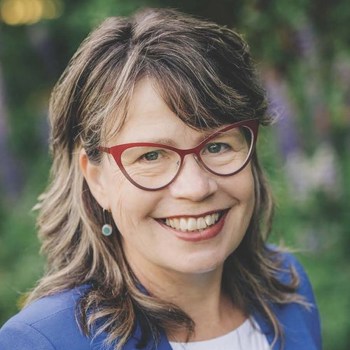
Suzie Currie is a comparative animal physiologist interested in how biotic factors, such as the social environment, influence how fish sense and respond to warming temperature. With her research team, she has worked on a wide variety of freshwater and marine species in temperate and tropical habitats. Suzie is an editorial board member of the Journal of Experimental Biology and was the lead editor in the most recent edition of the popular Physiology of Fishes. Suzie recently moved from Canada’s east coast (Acadia University, Nova Scotia) to the west as the Vice-Principal and Associate Vice-President Research and Innovation at the University of British Columbia.
Session
-
Session III: Thermosensation and temperature
Tuesday 25 March 15:30 - 17:00
Room 3A
Programme: Sensory perception in a changing world - impacts on physiology and behaviour
Wayne Dawson
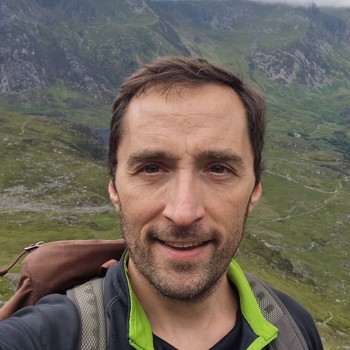
Professor Wayne Dawson’s research focuses on understanding the causes and consequences of invasions by introduced plants at multiple spatial scales, from individual plants to ecological communities, and through to the whole world (macroecology). He is particularly interested in plant communities and plant-soil interactions. Before moving to Liverpool, he was an Associate Professor at Durham University (2016–2023). From 2011 to 2015, he was a senior post-doc at the University of Konstanz (Germany), where he became a core team member of the Global Naturalized Alien Flora (GloNAF) database project, working with colleagues from Austria, Germany, and the Czech Republic.
In his talk Professor Dawson will cover both his research and his broader impact work.. His research focuses on the causes and consequences of invasions by introduced plants on ecosystems. He uses his expertise in this area to regularly contributes to workshops and risk assessments aimed at identifying species posing a high risk of invasion to the UK and beyond.
Ajinkya Dehake
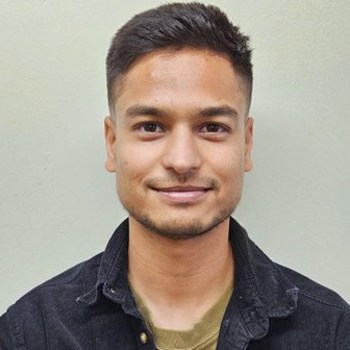
I am interested in understanding how animals make decisions, and what information do they need to make those decisions. I have a keen interest in sensory systems of non-model insects. During my PhD with Dr. Robert A. Raguso at Cornell University, I explored the sensory ecology of pollinators like hawkmoths, beetles, and bees with a focus on their humidity sensing behavior. In my present role as a postdoctoral scholar in Dr. Carolyn McBride's lab at Princeton University, I study the olfactory neurons mediating attraction to humans in the yellow fever mosquito Aedes aegypti.
Session
-
Session VIII: Chemical sense
Thursday 27 March 13:30 - 15:00
Room 3A
Programme: Sensory perception in a changing world - impacts on physiology and behaviour
Jennifer DeLuca
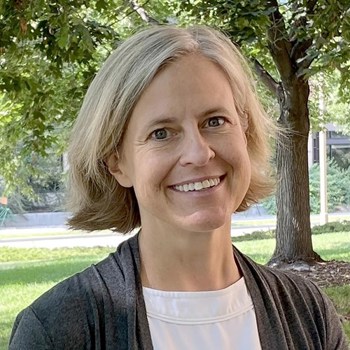
The work in our lab focuses on mitotic cell division. We are working to try to unravel the mechanisms for how cells divide their genetic material exactly into two daughter cells during mitosis, which is essential to ensure genomic integrity. We also aim to understand how chromosome alignment and dynamics become deregulated in cancer cells to better understand how and why cancer cells commonly undergo defective cell division.
Session
-
Session III: Organelle dynamics
Tuesday 25 March 13:30 - 15:00
Hall 1B
Programme: Cell and developmental biology
Alba Diz-Muñoz
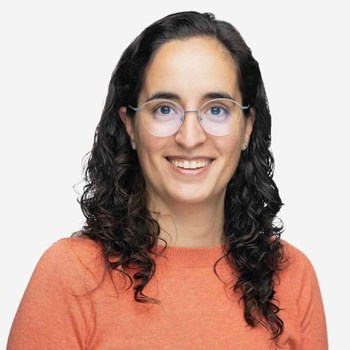
Mechanics lay at the heart of much of physiology and pathology. My laboratory at the EMBL in Heidelberg studies cellular force transduction and mechanical signaling in animal cells and tissues by combining imaging and biophysical approaches with protein engineering. Our material science perspective has allowed us to obtain fundamental insights to enhance immunotherapy, gate stem cell differentiation and improve cancer treatment.
Session
-
Session V: Mechanobiology
Wednesday 26 March 11:00 - 12:30
Hall 1A
Programme: Cell and developmental biology
Susanna Dunachie
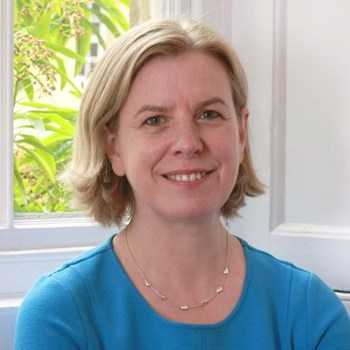
Susanna Dunachie is the Director of the NDM Centre for Global Health Research at University of Oxford, Professor of Infectious Diseases, and NIHR Global Research Professor. She is also an Honorary Consultant in Tropical Medicine and Infectious Diseases in the NHS. Her research programme focuses on developing vaccines for vulnerable populations, including defining immune correlates of protection for E. coli, Klebsiella species and B. pseudomallei (melioidosis). Since 2011 she has conducted collaborative research at Mahidol-Oxford Tropical Medicine Research Unit (MORU) in Bangkok, Thailand and in 2019 was awarded a Hamied Foundation / Academy of Medical Sciences UK-India AMR Visiting Professorship.
Session
-
Session III: Detecting AMR / persistence in the environment, clinical case studies, solution science, impact & innovation
Wednesday 26 March 15:30 - 17:00
Hall 1C
Programme: Interdisciplinary approaches to combatting antimicrobial resistance
Fernanda Duque
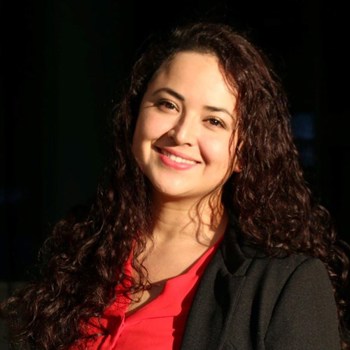
Dr. Fernanda Duque is a neuroethologist investigating the evolution of communication signals and sensory adaptations as well as the neural basis of multimodal communication in birds.
Session
-
Session VI: Sound sense
Wednesday 26 March 15:30 - 17:00
Room 3A
Programme: Sensory perception in a changing world - impacts on physiology and behaviour
Sadaf Farooqi
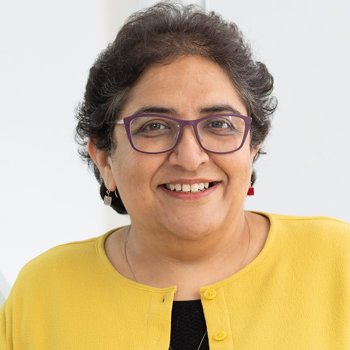
Professor Sadaf Farooqi (PhD, FRCP, FMedSci, FRS) is a Wellcome Principal Research Fellow and Professor of Metabolism and Medicine at the University of Cambridge, UK. She is an internationally leading Clinician Scientist who has made seminal contributions to understanding the genetic and physiological mechanisms that underlie obesity and its complications. The work of Sadaf Farooqi and her colleagues has fundamentally altered the understanding of how body weight is regulated. With colleagues, she discovered and characterised the first genetic disorders that cause severe childhood obesity and established that the principal driver of obesity in these conditions was a failure of the control of appetite. Her work is often cited as an exemplar of how the translation of research into the mechanisms of disease can lead to patient benefit. She has received a number of awards including the 2024 Outstanding Clinical Investigator Award from the Endocrine Society. In 2021, she was elected as a Fellow of the Royal Society in recognition of her exceptional contribution to science.
Session
-
Biologists @ 100 plenary session
Wednesday 26 March 09:00 - 10:30
Hall 1A
Plenary sessions
Jane Francis
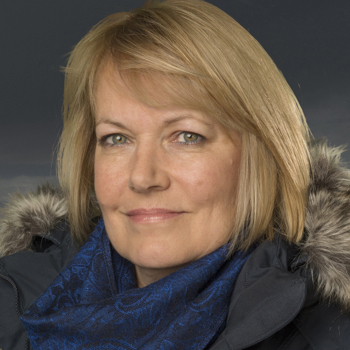
Jane Francis is Director of the British Antarctic Survey. Her research interests are in past climate change, using fossils to determine the change from greenhouse to icehouse climates in the Arctic and Antarctica over the past 100 million years. She has undertaken over 15 scientific expeditions to the polar regions in search of fossil forests and information about climates of the past.
Session
-
Biologists @ 100 plenary session
Tuesday 25 March 09:00 - 10:30
Hall 1A
Plenary sessions
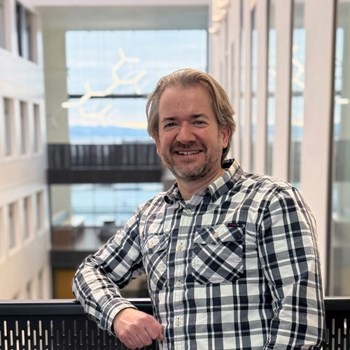
Ian Ganley
Anja Geitmann
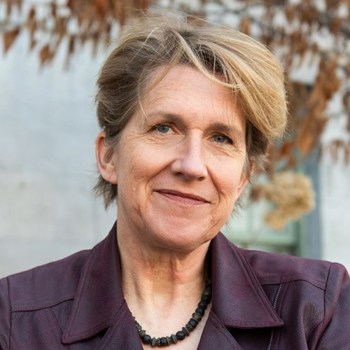
Dr. Geitmann’s research focuses on the cellular processes driving plant reproduction and morphogenesis. She holds the Canada Research Chair in Biomechanics of Plant Development and leads an interdisciplinary team of biologists and engineers. Her research combines cell biology with high-end imaging, micromanipulation, and computational modeling to study the mechano-structural underpinnings of plant functioning. Dr. Geitmann has served as the President of the International Association of Plant Reproduction Research, the Microscopical Society of Canada and the Canadian Society of Plant Biologists.
Session
-
Session VII: Conceptual frontiers
Wednesday 26 March 15:30 - 17:00
Hall 1A
Programme: Cell and developmental biology
Susana Godinho
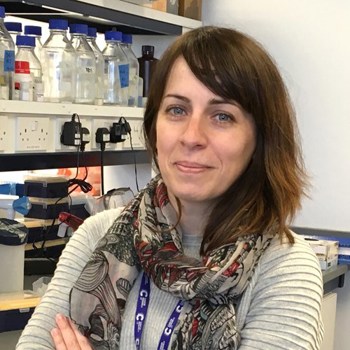
Susana received her undergraduate degree from the Faculty of Sciences - University of Lisbon. She did her PhD at Gulbenkian Institute of Science (Portugal) and Cambridge University (UK) where she studied the role of Polo kinase during mitosis in Drosophila. She then moved to Boston (USA) to do a postdoc at Dana-Farber Cancer Institute, Harvard Medical School where she become interested in the role of amplified centrosomes during mitosis and cell invasion. Susana started her lab at Barts Cancer Institute - QMUL in 2013. Her lab focused on understanding how morphological alterations on centrosomes and microtubules alter cell physiology and contribute to tumourigenesis.
Session
-
Session II: Cell division and proliferation
Tuesday 25 March 11:00 - 12:30
Hall 1C
Programme: Cell and developmental biology
Robyn Grant
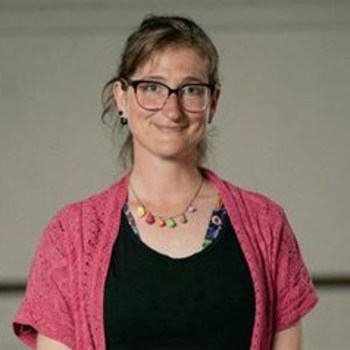
Robyn is a Reader in Comparative Anatomy and Behaviour at Manchester Metropolitan University. Her research explores how animals move and sense, with a specific focus on the sense of touch, especially that of whisker touch. Robyn explores the functional significance of touch sensing in mammals and birds, and works with museums and zoos across the UK.
Session
-
Session V: Vibration sense
Wednesday 26 March 13:30 - 15:00
Room 3A
Programme: Sensory perception in a changing world - impacts on physiology and behaviour
Maximiliano Gutierrez
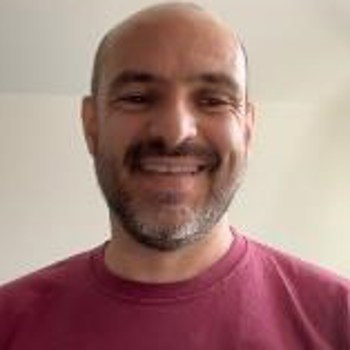
Cell biologist working on infection of macrophages and tuberculosis.
Session
-
Session II: Cellular mechanisms of AMR
Wednesday 26 March 13:30 - 15:00
Hall 1C
Programme: Interdisciplinary approaches to combatting antimicrobial resistance
Jorg Hardege
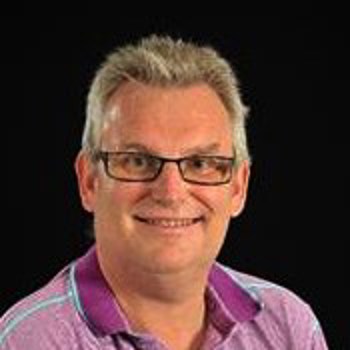
I am currently emeritus reader in Chemical ecology have worked on animal sensory systems for almost 40 years. This includes PhD studies at Oldenburg University in Germany (Dr. rer. nat 1992, summa cum laude), a DFG funded PDRA in Oldenburg and a NERC funded PDRA in St Andrews at the Gatty Marine Laboratory. I became lecturer in Chemical Ecology at Cardiff University in 1995 and Senior Lecturer in Hull 1999 and Reader in 2004 as well as Head of Department 2004-2008. Leading a research team in chemical ecology I supervised over 50 PhD's, 30 PDRA's/Fellows and over 20 alumni of the team are now at Professorial level globally. We published well over 100 papers on the topic. In recent years my team focussed on the effects of stressors on animal's ability to utilise olfactory cues including endocrine disruptors, heavy metals, pesticides, and climate change related pH and temperature alterations.
Session
-
Session VIII: Chemical sense
Thursday 27 March 13:30 - 15:00
Room 3A
Programme: Sensory perception in a changing world - impacts on physiology and behaviour
Matthias Heinemann
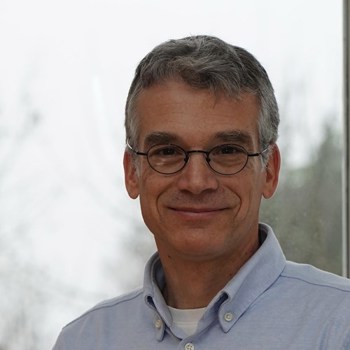
Session
-
Session VII: Conceptual frontiers
Wednesday 26 March 15:30 - 17:00
Hall 1A
Programme: Cell and developmental biology
Myriam Hemberger
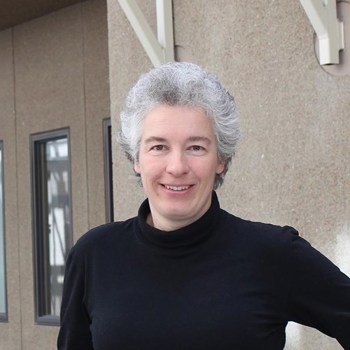
Session
-
Session IV: Cellular and developmental basis of disease
Tuesday 25 March 13:30 - 15:00
Hall 1C
Programme: Cell and developmental biology
Nick Hopwood
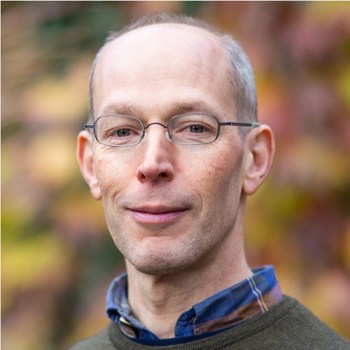
Nick Hopwood is Professor of History of Science and Medicine in the Department of History and Philosophy of Science, University of Cambridge, and a co-chair of Cambridge Reproduction. Among other works, he is the author of Haeckel’s Embryos: Images, Evolution, and Fraud (Chicago, 2015), which won the Levinson Prize of the History of Science Society, and co-editor of Reproduction: Antiquity to the Present Day (Cambridge, 2018), which is available as a highly illustrated paperback.
Session
-
Panel discussion
Thursday 27 March 15:45 - 16:45
Hall 1A
Programme: Cell and developmental biology
Maneesha Inamdar
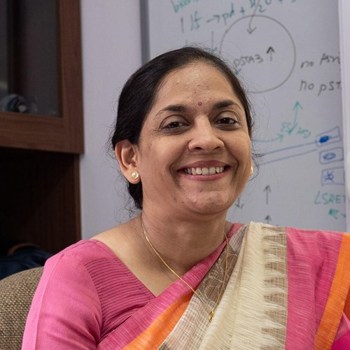
Session
-
Session IV: Cellular and developmental basis of disease
Tuesday 25 March 13:30 - 15:00
Hall 1C
Programme: Cell and developmental biology
Loydie Jerome-majewska
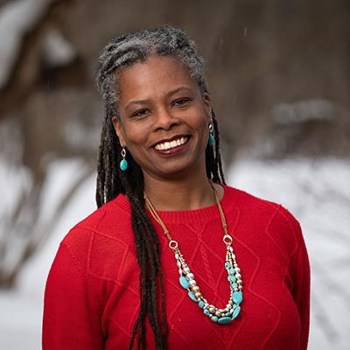
Dr. Loydie Jerome-Majewska is a Full Professor in the Department of Pediatrics, and associated member of the Departments of Human Genetics and Anatomy and Cell biology at McGill University.
She completed her PhD work with honors in the laboratory of Dr. Papaioannou at Columbia University, NYC, USA and a post-doctoral fellowship with Dr. E. Lacy, at Sloan Kettering Cancer Centre. Dr. Jerome-Majewska’s group uses the mouse model to study the genetic and cellular basis of morphogenesis during the embryonic period. Goals of her research program are to identify genes responsible for congenital malformations that increase morbidity and mortality in newborns. The current goal in the Jerome-Majewska laboratory is to uncover molecular factors or pathways which can be targeted to prevent/reduce morbidity associated with congenital malformations. Her work is funded by the Canadian Institute of Health and the Natural Sciences and Engineering Research Council
In addition, she is Editor-in-Chief for Differentiation and co-Founder of the Canadian Black Scientist Network which has over 700 members. Dr. Jerome-Majewska is a Fellow of the American Association for Anatomy and has received numerous awards for her research and equity work.
Session
-
Session IV: Cellular and developmental basis of disease
Tuesday 25 March 13:30 - 15:00
Hall 1C
Programme: Cell and developmental biology
Michiyo Kinoshita
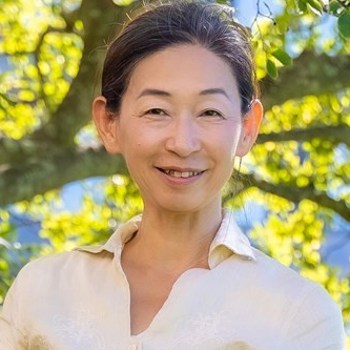
After being awarded PhD at Yokohama City University, and working as a JSPS postdoctoral fellow and Canon fellow, I am currently an Associate Professor at SOKENDAI, RCIES. My research interest is the visual world of insects. I’m mostly studying the neural system underlying visual perception in flower foraging butterflies by behavioral assay, electrophysiology and neuro-anatomy.
Session
-
Session I: Eyes
Tuesday 25 March 11:00 - 12:30
Room 3A
Programme: Sensory perception in a changing world - impacts on physiology and behaviour
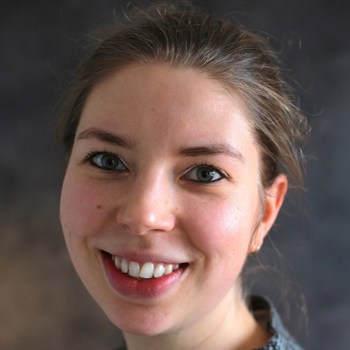
Tamina Lebek
Ana-Maria Lennon-Dumeni

Session
-
Session IX: Cell migration and communication
Thursday 27 March 11:00 - 12:30
Hall 1C
Programme: Cell and developmental biology
Maria Leptin
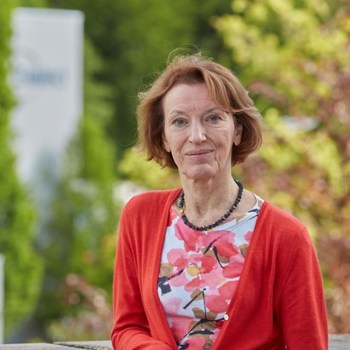
Session
-
Panel discussion
Thursday 27 March 15:45 - 16:45
Hall 1A
Programme: Cell and developmental biology
John Lesku

John Lesku is the Discipline Lead of Animal Biology & Health at La Trobe University in Melbourne, Australia. Prior to joining La Trobe, Dr Lesku had been based in Canada (BSc), the United States (MS), Germany (PhD), and Western Australia (Postdoctoral Research Fellow). He took up the position of Lecturer at La Trobe University in 2013. Since that time, Dr Lesku heads the Sleep Ecophysiology Group that offers a strong comparative perspective on the evolution of sleep physiology and sleep functions, with studies on birds, mammals, bony and cartilaginous fishes, and invertebrates. Furthermore, his group studies how pollution influences sleep in terrestrial and aquatic wildlife.
Session
-
Session II: Light pollution
Tuesday 25 March 13:30 - 14:55
Room 3A
Programme: Sensory perception in a changing world - impacts on physiology and behaviour
Roger Linington
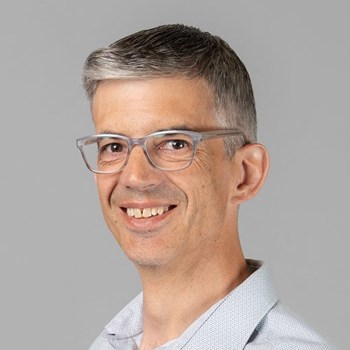
Professor Linington studies natural products for antiinfective drug discovery. His laboratory is interested in untargeted metabolomics, high-throughput screening and data science integration for large-scale bioactivity annotation of natural products libraries
Session
-
Session I: Drug discovery and ‘omics
Wednesday 26 March 11:00 - 12:30
Hall 1C
Programme: Interdisciplinary approaches to combatting antimicrobial resistance
Jennifer Lippincott-Schwartz

Sessions
-
Biologists @ 100 plenary session
Thursday 27 March 09:00 - 10:30
Hall 1A
Plenary sessions
-
Panel discussion
Thursday 27 March 15:45 - 16:45
Hall 1A
Programme: Cell and developmental biology
Tom Macvicar
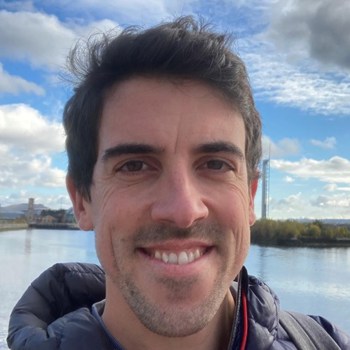
Tom is a Junior Group Leader and CRUK Career Development Fellow at the CRUK Scotland Institute (formerly Beatson Institute) and University of Glasgow. He established his lab in 2022 where his research group explores how mitochondria are reprogrammed in tumours with an overall goal to target metabolic plasticity in cancer. He joined the BSCB committee in 2023.
Session
-
Session III: Organelle dynamics
Tuesday 25 March 13:30 - 15:00
Hall 1B
Programme: Cell and developmental biology
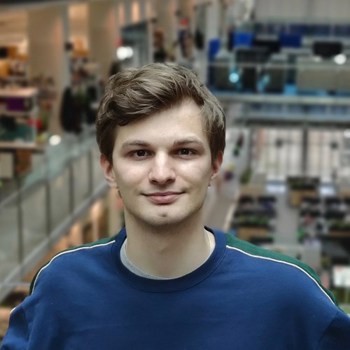
Rory Maizels
Marisa Merino
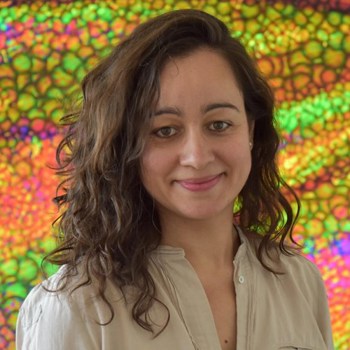
I have always been passionate to understand how cells within tissues communicate to build up successful organisms. Indeed, my work shows for the first time that, Cell Competition is a physiological mechanism (Merino et al. 2013, Current Biology) which controls organismal lifespan (Merino et al. 2015, Cell & Merino et al. 2016, Trends in Cell Biology).
The difference between unfit and fit cells can be encoded by different levels of Dpp signalling. In the wing of flies and the pectoral fin of fish, the decay length (i.e. how far the morphogen reaches) of these morphogen gradients (Dpp and BMP) is proportional to the length of the growing tissue during development, namely they scale. Different levels of Dpp signalling are reminiscent of the steepness of the gradient that is-its decay length. In my recent work (Merino et al. 2022, Nature Cell Biology & Merino et al. 2022, Trends in Cell Biology), I have made a discovery of a novel phenomenon, Death-Mediated Scaling: the scaling of TGF-beta type growth factors (i.e. Dpp morphogen) is mediated also by Cell Death. On the other hand, disrupted TGF-beta signalling is one of the most common causes of tumorigenesis.
Death-mediated scaling machinery might provide a molecular toolbox exploited by cancer cells.
Session
-
Session IX: Cell migration and communication
Thursday 27 March 11:00 - 12:30
Hall 1C
Programme: Cell and developmental biology
Michel Milinkovitch
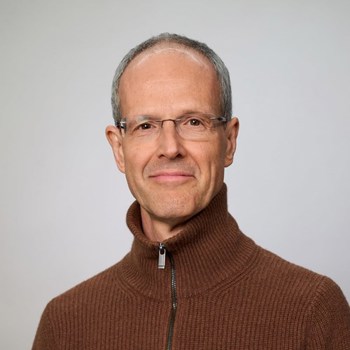
Michel Milinkovitch is Full Professor in the Department of Genetics & Evolution at the University of Geneva (Switzerland) and President of the Division of Biology since 2019. He is also a member of the Institute of Genetics and Genomics in Geneva (iGE3) since its foundation (2011) and a Group leader of the Swiss Institute of Bioinformatics (SIB) since 2014. In his ‘previous life’ as an evolutionary geneticist, he contributed to quantitative analysis and modelling in Molecular Phylogenomics and Applied Evolutionary Genetics. He has developed concepts, analytical tools, and algorithms/models for multiple sequence alignments, phylogeny inference and haplotypic network building. His recent focus (since 2008) is on Evolutionary Developmental Genetics (Evo-Devo) and the Physics of Biology. He specialises on non-classical model species in reptiles and mammals and integrates data and analyses from comparative genomics, molecular developmental genetics, as well as mathematical modelling and numerical simulations. He has published over 120 papers in international peer-reviewed journals (including Nature, Nature Communications, Science, Science Advances, PNAS, PRL, Mathematics). He has given over 150 talks around the world. He has been reviewer for over 50 peer-reviewed international biology and physics journals, and has served as external reviewer for academic promotions, grant proposals, and PhD committees in Europe and the USA. He has served on the Editorial Board of scientific journals and has supervised over 20 Ph.D. theses. He has been a member of the ERC (European Research Council) evaluation program and has chaired one of its panels. His work has made on multiple occasions the headlines in the media (BBC; National Geographic; Swiss, European and US Televisions and radios; The New York Times, The Washington Post, …). He is the co-founder (November 2001) of the spin-off Delphi Genetics which was acquired in 2021 by Catalent, a giant in innovative drug development and delivery. He is married and has 4 children.
Session
-
Session VII: Conceptual frontiers
Wednesday 26 March 15:30 - 17:00
Hall 1A
Programme: Cell and developmental biology
Cait Newport
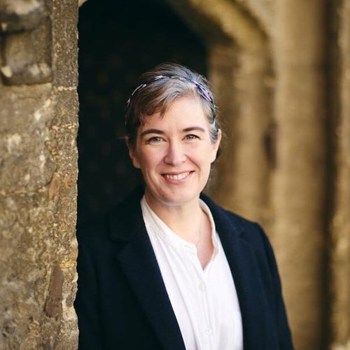
Dr. Cait Newport is a researcher in the Department of Biology at the University of Oxford, where she specializes in studying vision and behavioral ecology in fish. Her research focuses on understanding how fish navigate their environments and make decisions, with particular emphasis on visual processing and movement behavior in coral reef species.
Dr. Newport is currently an Eric & Wendy Schmidt AI in Science Postdoctoral Fellow and using computer vision technologies to investigate how coral reef fish adapt their navigation and movement strategies under varying visual conditions. Her interdisciplinary work combines behavioral ecology with cutting-edge AI techniques to better understand marine animal behavior.
Session
-
Session I: Eyes
Tuesday 25 March 11:00 - 12:30
Room 3A
Programme: Sensory perception in a changing world - impacts on physiology and behaviour
Esther Ndumi Ngumbi
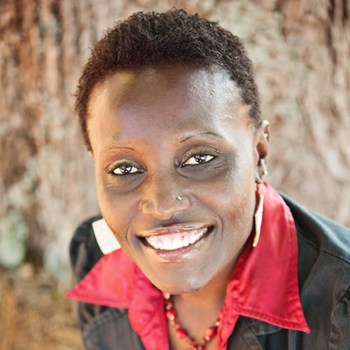
Esther Ngumbi is an Assistant Professor in Entomology and African American Studies, University of Illinois at Urbana Champaign. She is a senior food security fellow with the New Voices Fellowship at the Aspen Institute.
Her research is focused on understanding how climate change associated stressors including flooding impact chemical-mediated interactions among herbivorous insects, natural enemies, plants and their associated microorganisms. In addition, Dr. Ngumbi’ s research on beneficial soil microbes seeks to find microbial-based solutions for improving crop production, alleviating flooding and drought stress in crop plants and sustainable pest management and agriculture.
She has been the recipient of several national and international awards including UIUC Campus Awards for Excellence in Public Engagement with Science, the 2021 American Association for the Advancement of Science Mani L. Bhaumik Award for Public Engagement with Science, and 2018 Society of Experimental Biology Presidents Medal.
Dr. Ngumbi is a thought leader and has contributed immensely to national and global discussions in several areas, including climate change, need to invest in flooding research, food security, science policy, agricultural development, and sustainability. Believing that issues like climate change associated extremes and hunger and food insecurity affect all of us, Dr. Ngumbi has continued to demonstrate visionary and inspirational leadership in the pursuit of a sustainable future where hunger and food insecurity are eradicated, and a future where scientific research provides sustainable solutions to climate change.
Iruka Okeke
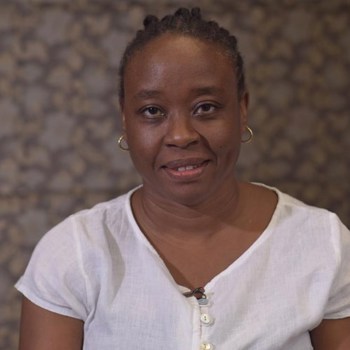
Iruka N Okeke is Professor at the University of Ibadan, Nigeria and a Calestous Juma Science Leadership Fellow. Iruka’s research group investigates the mechanisms bacteria use to colonize humans, cause disease and gain antimicrobial resistance. She also studies laboratory practice in Africa and her group contributes to antimicrobial resistance surveillance in Nigeria.
Session
-
Session III: Detecting AMR / persistence in the environment, clinical case studies, solution science, impact & innovation
Wednesday 26 March 15:30 - 17:00
Hall 1C
Programme: Interdisciplinary approaches to combatting antimicrobial resistance
Ewa Paluch
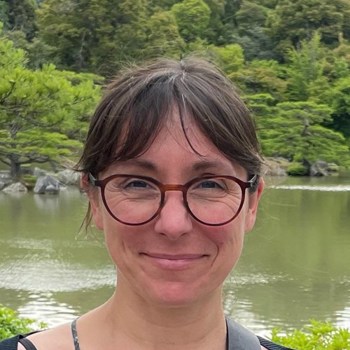
Session
-
Session V: Mechanobiology
Wednesday 26 March 11:00 - 12:30
Hall 1A
Programme: Cell and developmental biology
Hans-Otto Pörtner
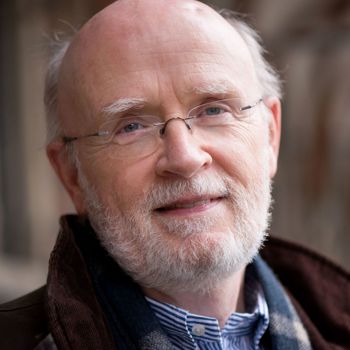
Hans-Otto Pörtner is a researcher in ecophysiology. He has established theory and evidence on effects of climate warming, ocean acidification, and hypoxia on (marine) animals and ecosystems. His efforts focus on linking biogeography and ecosystem functioning to molecular, biochemical and physiological mechanisms shaping organism tolerance and performance. In October 2015 he was elected Co-Chair of IPCC Working Group II for its 6th assessment cycle. He is an elected member of the European Academy of Sciences, the German Advisory Council on Global Change and a Web of Science highly cited researcher 2018 onward.
Session
-
Biologists @ 100 plenary session
Tuesday 25 March 09:00 - 10:30
Hall 1A
Plenary sessions
Olivier Pourquié
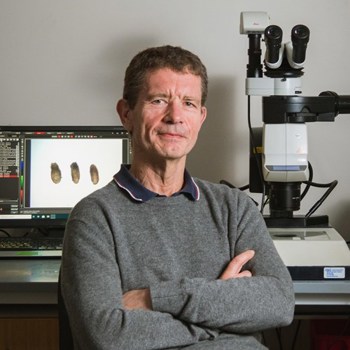
Session
-
Session VI: Biology across scales
Wednesday 26 March 13:30 - 15:00
Hall 1A
Programme: Cell and developmental biology
Manu Prakash
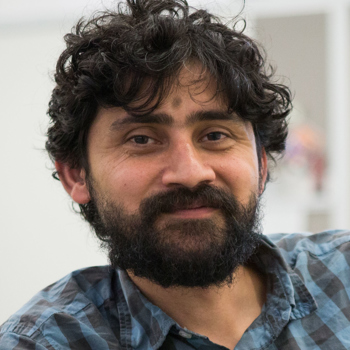
Manu Prakash is an Associate Professor in the Department of Bioengineering at Stanford University working in the field of physical biology and frugal science. He runs a curiosity driven lab at Stanford combining his passion for basic science while also developing ultra-affordable and accessible technologies that are used around the world for science education, research, and public health with the goal of democratizing access to scientific tools. Manu grew up in India and got his PhD from MIT, was a Junior Fellow at Harvard Society of Fellows and a 2016 MacArthur Fellow.
Session
-
Biologists @ 100 plenary session
Thursday 27 March 09:00 - 10:30
Hall 1A
Plenary sessions
Nathan Putman
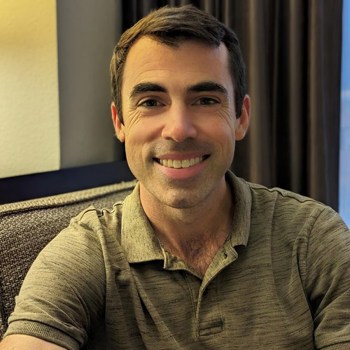
Dr. Nathan Putman studies the movement ecology of marine organisms using analytical, modeling, laboratory, and field-based techniques. He has particular interest in magnetic navigation of marine animals, conducting research on sea turtles, salmon, eels, and sharks. He served as the invited guest editor for the 2022 special issue “Magnetosensation” in Journal of Comparative Physiology – A. He received his Ph.D. under the direction of Kenneth Lohmann at the University of North Carolina – Chapel Hill and currently lives in Bryan, Texas USA and is a Senior Scientist at LGL Ecological Research Associates.
Session
-
Session VII: Magnetic sense
Thursday 27 March 11:00 - 12:30
Room 3A
Programme: Sensory perception in a changing world - impacts on physiology and behaviour
Jordan Raff
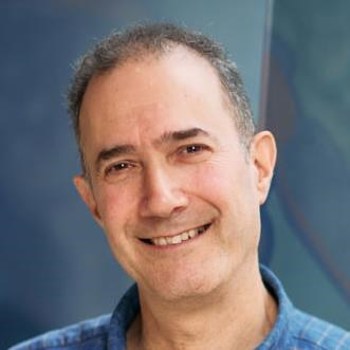
Jordan studied Biochemistry at Bristol University and for his PhD at Imperial College London, where he started to work on centrosomes and cell division in Drosophila. He has continued to work in these areas throughout his career, first as a post-doctoral fellow at the University of California, San Francisco, then as a Wellcome or CRUK funded group leader at the Gurdon Institute in Cambridge. He moved to the Sir William Dunn School of Pathology in Oxford in 2009 to become the Milstein Chair of Cancer Cell Biology. He has served as President of the British Society for Cell Biology, and in various roles for the Company of Biologists—most importantly as the first Editor in Chief of Biology Open. He is an EMBO member, and a Fellow of the Academy of Medical Science and of the Royal Society. He has always taken a keen interest in science communication and promoting the public understanding of science.
Session
-
Session II: Cell division and proliferation
Tuesday 25 March 11:00 - 12:30
Hall 1C
Programme: Cell and developmental biology
Vanessa Ribes
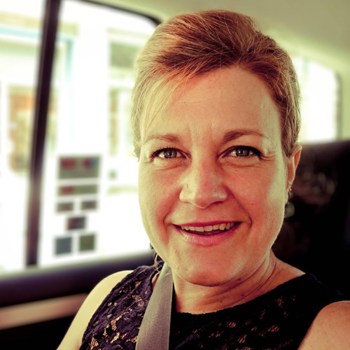
Session
-
Session VIII: Stem cell based models of development
Thursday 27 March 11:00 - 12:30
Hall 1B
Programme: Cell and developmental biology
Nicolas Rivron
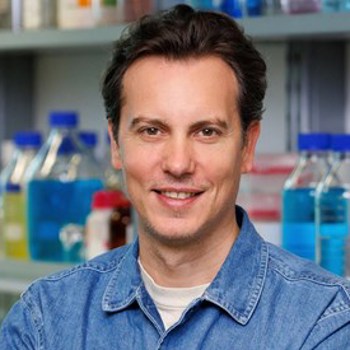
Nicolas Rivron is a group leader at the Institute for Molecular Biotechnologies of the Austrian Academy of Sciences (Vienna, Austria). He led the development of the first complete embryo model. It reflects the blastocyst in mice (2018, Nature) and humans (2021, Nature) and is named blastoid. Blastoids are unique in two respects: they are complete and they represent the pre-implantation stage thereby enabling implantation in utero. Using blastoids, the Rivron lab explores (1) the conserved principles of embryonic self-organization, especially the coordination and pacing of molecular and mechanical signalings in the context of human heterochronies, and (2) the human genetic traits that have led to our low fecundity compared to other primates (50% of fertilized oocytes never develop). This fundamental research aims to uncover the evolutionary constraints and vulnerabilities of human embryogenesis, knowledge of which is necessary for the development of novel therapeutic approaches to global health challenges such as family planning, fertility decline and prenatal preventive medicine.
Session
-
Session VIII: Stem cell based models of development
Thursday 27 March 11:00 - 12:30
Hall 1B
Programme: Cell and developmental biology
Daniel Robert
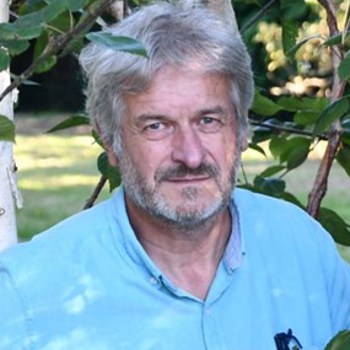
Daniel Robert is a sensory ecologist interested in the biophysics of miniature sensory systems. He obtained his PhD in neurobiology at the University of Basel, Switzerland with Hugh Rowell. After a postdoc with Lee Miller at Odense University, Denmark, he spent time in Ivory Coast studying acoustic communication and tool use in wild chimpanzees. Then, he took up the opportunity to be a research associate in Ron Hoy's lab at Cornell University, Ithaca NY, and Ron Miles at the University of Binghamton NY. While subsequently working at the University of Zürich as a Swiss Science Foundation research professor, he was awarded the Schering Fellowship at the Institute for Advanced Study in Berlin, where he convened the bio-inspired technologies study group. In 2001, he took up a professorship at the University of Bristol, where he has been since. Daniel is a recipient of a Royal Society Wolfson Research Merit Award, and the founding director of the interdisciplinary Bristol Centre for Nanoscience and Quantum Information. Robert’s research involves interdisciplinary collaborations with sensory biologists, plant biologists, engineers, mathematicians and physicists.
Daniel's investigations on arthropods have contributed to sensory research and nanoscale biological mechanics. His research at Cornell on parasitoid flies established the third principle of directional hearing, prompting the development of bio-inspired miniature microphones. More recently, Daniel and his team discovered that bumblebees can detect and learn floral electric fields. Their subsequent studies on spiders, wasps, caterpillars and treehoppers revealed the ubiquitous presence, roles and uses of electrostatics, establishing electroreception in air as a novel sensory modality for terrestrial animals.
Session
-
Session IV: Infrared and electric sense
Wednesday 26 March 11:00 - 12:30
Room 3A
Programme: Sensory perception in a changing world - impacts on physiology and behaviour
Crystal Rogers
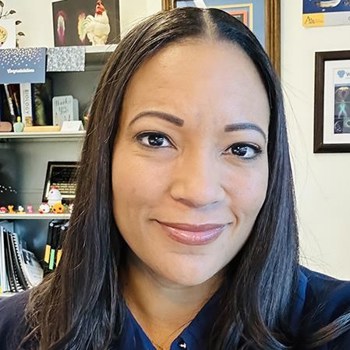
Dr. Rogers is currently an Associate Professor at the University of California, Davis. She obtained her BS at UCLA, her PhD at Georgetown University with Dr. Elena Silva Casey, and then moved to a postdoctoral fellowship with Dr. Marianne Bronner at Caltech. Her lab studies the molecular mechanisms that drive neural crest cell formation, migration, and differentiation using avian and amphibian models.
Session
-
Session IX: Cell migration and communication
Thursday 27 March 11:00 - 12:30
Hall 1C
Programme: Cell and developmental biology

Sanjay Sane
Victoria Sanz-Moreno

Victoria Sanz-Moreno received a degree in chemistry and later in biochemistry (University of Oviedo, Spain) followed by a PhD in chemical sciences studying Ras-MAPK signalling (University of Cantabria). She then joined Professor Chris Marshall’s lab at The Institute of Cancer Research in London as a Marie Curie Intra-European Postdoctoral Fellow. In 2008, she received the Applied Biosystems and EACR 40th Anniversary Research Award for her work on Rho GTPase signalling during cancer dissemination.
In 2011, Victoria started her independent group and received a CRUK Career Development Fellowship at King's College London to study transcriptional programs driving metastasis. In 2015, she was highly commended as CRUK Communications and Brand Ambassador. In 2017, she was awarded the BSCB Women in Cell Biology Early Career Award Medal and she received a CRUK Senior Fellowship to study the role of Rho kinase in cancer progression and therapy responses. In 2017-2018, she was featured by Journal of Cell Science as “Cell Scientist to Watch” and by Journal of Cell Biology for her work on Rho GTPases.
In 2018, Victoria joined Barts Cancer Institute (Queen Mary University of London) as Professor of Cancer Cell Biology to study how cytoskeletal dynamics in metastatic cancer cells alter the tumour microenvironment. In 2021, she was elected to be part of “Ruta de las Cientificas”- an App celebrating the achievements of 9 women in STEM. In 2022 she received the Estela Medrano Memorial Award from the Society for Melanoma Research, the VP Award for Research Excellence from Queen Mary's Faculty of Medicine and Dentistry and the Research Impact Award at Barts Cancer Institute.
In September 2023, Victoria’s lab moved to the Breast Cancer Now Toby Robins Research Centre at The Institute of Cancer Research. Combining cell biology, OMICs, mouse models, patient material and digital pathology, Victoria’s lab works on understanding how cytoskeletal dynamics in cancer cells control local invasion, dissemination, survival and outgrowth at the secondary site. Her lab is interested in deciphering how metastatic cancer cells interact with their microenvironment while evading anti-cancer therapies while the ultimate goal is to find anti-metastasis therapies.
She is passionate about science communication and promoting diversity in science.
Session
-
Session V: Mechanobiology
Wednesday 26 March 11:00 - 12:30
Hall 1A
Programme: Cell and developmental biology
Ritwick Sawarkar

Ritwick studied Microbiology and Biochemistry in Mumbai (India) and obtained his PhD in 2010 from Indian Institute of Science, Bangalore. Ritwick then moved to the Department of Biosystems Science and Engineering of ETH-Zürich in Basel (Switzerland) as a postdoctoral fellow with Renato Paro. In 2014, Ritwick started his own independent group at the Max Planck Institute of Immunobiology and Epigenetics in Freiburg (Germany), before moving to the MRC, University of Cambridge in 2019. Ritwick received the ERC Consolidator Grant in 2018 and Alfred Tissières Young Investigator Award in 2019.
Session
-
Session II: Cell division and proliferation
Tuesday 25 March 11:00 - 12:30
Hall 1C
Programme: Cell and developmental biology
Richard Sever

Richard Sever is Assistant Director of Cold Spring Harbor Laboratory Press at Cold Spring Harbor Laboratory in New York and Co-Founder of the preprint servers bioRxiv and medRxiv. He also serves as Executive Editor for the Cold Spring Harbor Perspectives in Biology and Cold Spring Harbor Perspectives in Medicine.
After receiving a degree in Biochemistry from Oxford University, Richard obtained his PhD at the MRC Laboratory of Molecular Biology in Cambridge, UK. He then moved into editorial work, first as an editor at Current Opinion in Cell Biology and later Trends in Biochemical Sciences. Richard subsequently served as Executive Editor of Journal of Cell Science, before moving to Cold Spring Harbor Laboratory in 2008. In 2022, he was awarded an honorary DSc from Cold Spring Harbor School of Biological Sciences in recognition of his work to promote scientific communication.
Hari Shroff
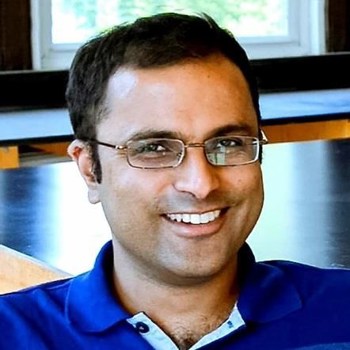
Dr. Hari Shroff received a B.S.E. in bioengineering from the University of Washington in 2001, and under the supervision of Dr. Jan Liphardt, completed his Ph.D. in biophysics at the University of California at Berkeley in 2006. He spent the next three years performing postdoctoral research in Eric Betzig’s lab at the Howard Hughes Medical Institute's Janelia Research Campus where his research focused on the development of photoactivated localization microscopy (PALM), an optical super-resolution technique that earned Betzig a share of the 2014 Nobel Prize in Chemistry. For the next thirteen years, Shroff headed the Laboratory of High Resolution Optical Imaging at the National Institute of Biomedical Imaging and Bioengineering at the National Institutes of Health, working to improve fluorescence microscopy methods suited for volumetric time-lapse (‘4D’) imaging. Commercialized inventions from this period include dual-view selective plane illumination microscopy (diSPIM) and instant super-resolution microscopy (iSIM). Shroff recently returned to Janelia, where he continues to push the envelope in biological imaging. Current areas of research include adaptive optics, deep learning, and the study of brain development in simple organisms.
Session
-
Session VI: Biology across scales
Wednesday 26 March 13:30 - 15:00
Hall 1A
Programme: Cell and developmental biology
Ana Širović
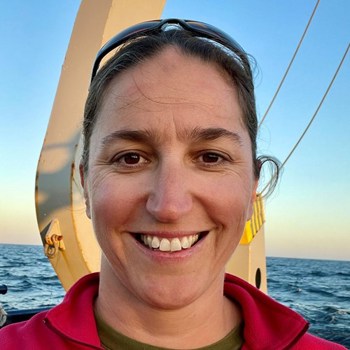
Ana Širović is a marine bioacoustician, interested in using acoustic tools to answer ecological, population-level questions relevant to the management of highly exploited and endangered marine species. She also studies ocean noise and the effects of anthropogenic noise on marine life. She received a PhD in Oceanography from the Scripps Institution of Oceanography at the University of California San Diego. After 23 years of various academic positions in the United States, she returned to Europe and is now a professor at the Norwegian University of Science and Technology in Trondheim, Norway.
Session
-
Session VI: Sound sense
Wednesday 26 March 15:30 - 17:00
Room 3A
Programme: Sensory perception in a changing world - impacts on physiology and behaviour
Hema Somanathan
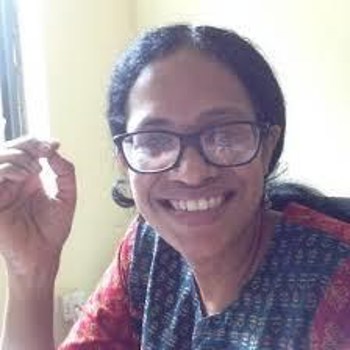
Hema Somanathan is a Principal Investigator at the School of Biology, IISER Thiruvananthapuram, India. Her group - BeeLab - works on bee sensory ecology and pollination biology in field sites across India. She employs a combination of behavioral experiments and field studies in her research. Her research includes little-studied Asian honeybees and nocturnal and diurnal carpenter bees.
Session
-
Session II: Light pollution
Tuesday 25 March 13:30 - 14:55
Room 3A
Programme: Sensory perception in a changing world - impacts on physiology and behaviour
Benjamin Steventon
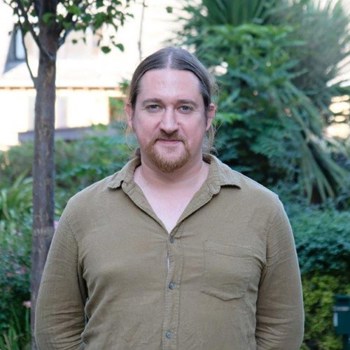
Ben Steventon trained in the labs of Roberto Mayor (as PhD 2004-2008, UCL, UK), Andrea Streit (as PostDoc 2008-2012, KCL, UK), Jean-Francois Nicolas and Estelle Hirsinger (as PostDoc 2011-2013, Institute Pasteur, France), Scott Fraser (as Marie-Curie Outgoing Fellow 2013-2014, USC, USA) and Alfonso Martinez Arias (as Marie-Curie Incoming Fellow 2014-2015, Cambridge). He started his research group in 2016 supported by a Wellcome Trust/Royal Society Sir Henry Dale fellowship. In November 2021 he transitioned to an Assistant Professor in the Department of Genetics (University of Cambridge).
Session
-
Session VIII: Stem cell based models of development
Thursday 27 March 11:00 - 12:30
Hall 1B
Programme: Cell and developmental biology
Charles Swanton
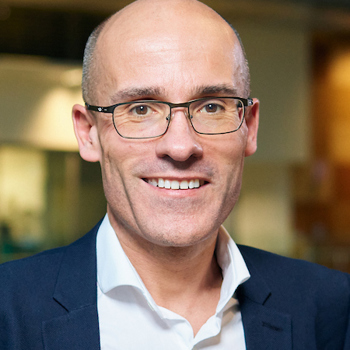
Session
-
Biologists @ 100 plenary session
Wednesday 26 March 09:00 - 10:30
Hall 1A
Plenary sessions
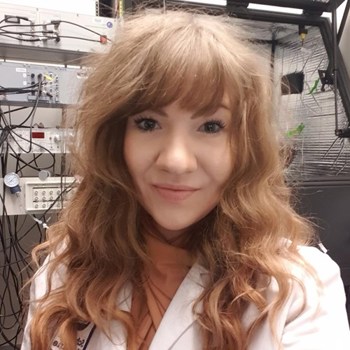
Pamela Swiatlowska
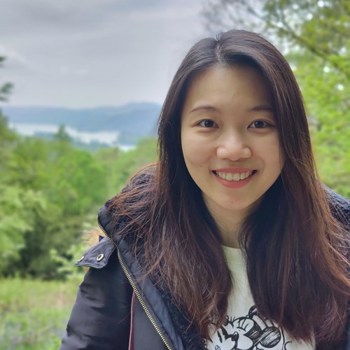
Pei Yee Tey
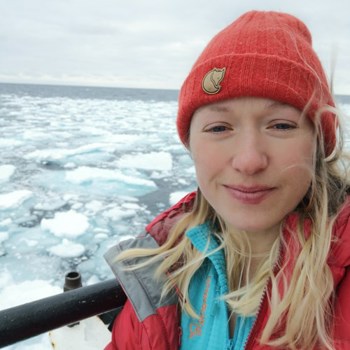
Sarah-Jane Walsh
Eric Warrant
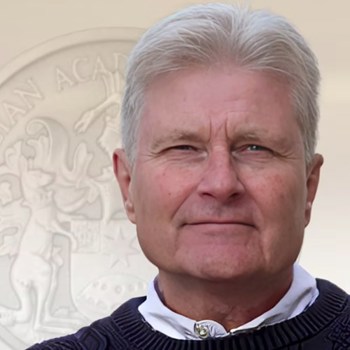
Eric Warrant is Professor of Zoology at the University of Lund in Sweden and is head of the Division of Sensory Biology (Department of Biology), Head of the Lund Vision Group and Past-President of the International Society of Neuroethology. Warrant leads an active research group studying vision and visual navigation in animals from extremely dim habitats (nocturnal and deep sea). In recent years he has turned his attention to the sensory basis of long-distance migration in nocturnal insects, particularly the role of the Earth’s magnetic field and the stars in migratory navigation.
Session
-
Session VII: Magnetic sense
Thursday 27 March 11:00 - 12:30
Room 3A
Programme: Sensory perception in a changing world - impacts on physiology and behaviour
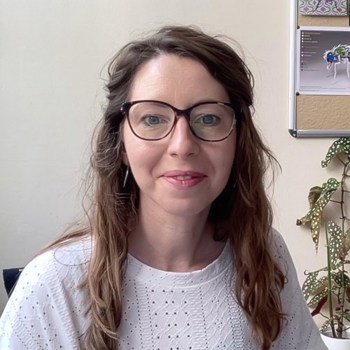
Helen Weavers
Chris Whitewoods
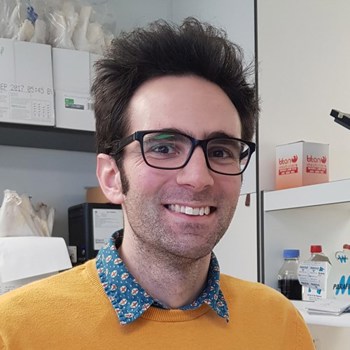
Chris Whitewoods is a Career Development Fellow at the Sainsbury Laboratory in Cambridge, where he investigates internal leaf patterning. Current projects include how intercellular air spaces form, and the genetic control of palisade and spongy mesophyll cell identity.
Session
-
Session I: Patterning and morphogenesis
Tuesday 25 March 11:00 - 12:30
Hall 1B
Programme: Cell and developmental biology
Alpha Yap
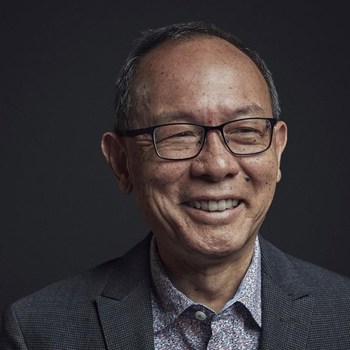
Alpha Yap is an Australian Research Council Laureate Fellow. He and his lab seek to understand tissue mechanobiology: how mechanical forces control the behaviour of complex, multicellular tissues in health in disease. Their recent work focuses on characterising the cellular mechanisms that mediate mechanical homeostasis in epithelia, and testing how these support homeostasis against cell death and transformation.
They’ve been helped in this endeavour by the generous support of developmental biologists, physicists, engineers and clinicians. Alpha has led international conferences and the Australia and New Zealand Society for Cell Biology; serves as editor for several international journals; was Division Head at the University of Queensland’s Institute for Molecular Bioscience; is an EMBO Associate member and and a Lifetime Fellow of the American Society for Cell Biology. His spare time is occupied by a quixotic attempt to play the piano.
Session
-
Session III: Organelle dynamics
Tuesday 25 March 13:30 - 15:00
Hall 1B
Programme: Cell and developmental biology
Nadine Ziemert
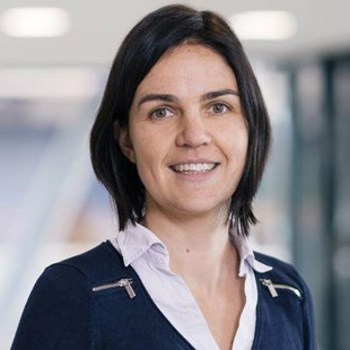
Nadine Ziemert studied biology at Humboldt University in Berlin, where she received her Ph.D. She then spent several years as a postdoctoral researcher at the Scripps Institute of Oceanography in California. She also worked there as a project scientist in 2013-14. In 2014, she returned to Germany and accepted a professorship in Translational Natural Product Genomics at the University of Tübingen. Since 2019, she is a full professor in Tübingen.
Session
-
Session I: Drug discovery and ‘omics
Wednesday 26 March 11:00 - 12:30
Hall 1C
Programme: Interdisciplinary approaches to combatting antimicrobial resistance




